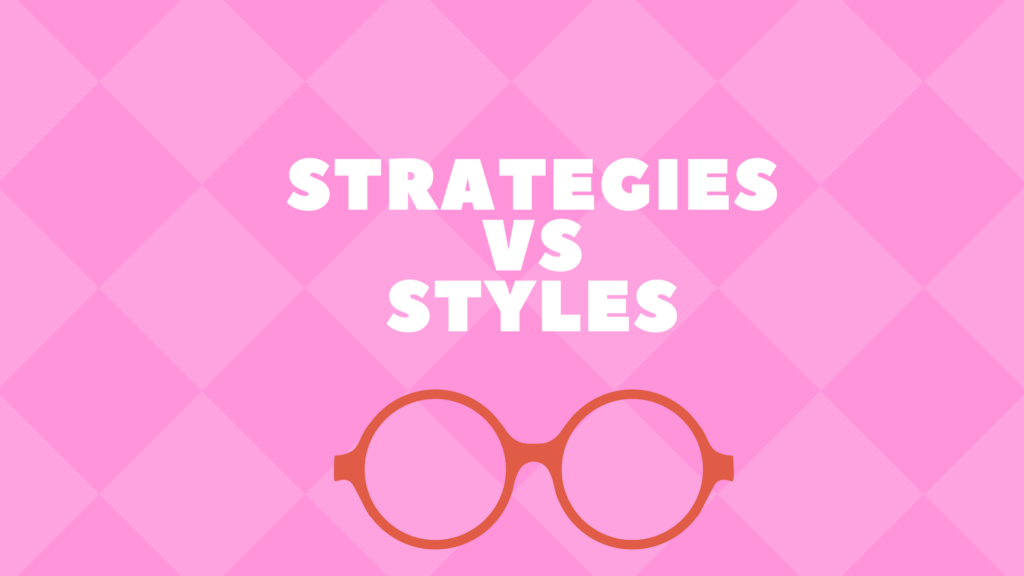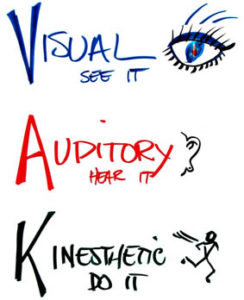Help for Struggling Learners: Styles versus Strategies
Written by Preet Mankad
Published on March 21, 2017
 Children are often asked to complete various tests in schools that will help determine their “learning style”. These tests categorize children as “visual” learners or “kinesthetic” learners, for example.
Children are often asked to complete various tests in schools that will help determine their “learning style”. These tests categorize children as “visual” learners or “kinesthetic” learners, for example. The implication is that children should be taught in their preferred sensory format (seeing, hearing, touching, etc.). However, recent research has found no concrete evidence that learning styles exist. The notion that children can be identified has having one learning style or another is a neuro-myth. It sounds like science, but there is no science to back it up!
The implication is that children should be taught in their preferred sensory format (seeing, hearing, touching, etc.). However, recent research has found no concrete evidence that learning styles exist. The notion that children can be identified has having one learning style or another is a neuro-myth. It sounds like science, but there is no science to back it up!
Imagine this: Your child takes a test and they are told: “Sally, you’re visual learner”. Sally then tries to study with pictures and videos but finds that she still struggles to learn. She may begin to wonder if she is just “not smart” enough.
 Learning style is a popular buzz-word that is often confused with learning strategies. But these are very different concepts! A learning style implies a passive learner who is powerless to change their “style” but presumably benefits from information provided in a specific format. In contrast, a learning strategy, such as the use of elaboration techniques and/or retrieval practice, implies an active learner.
Learning style is a popular buzz-word that is often confused with learning strategies. But these are very different concepts! A learning style implies a passive learner who is powerless to change their “style” but presumably benefits from information provided in a specific format. In contrast, a learning strategy, such as the use of elaboration techniques and/or retrieval practice, implies an active learner.
Lexercise has a number of different curricula used to help struggling readers, spellers and writers. For example, the Lexercise Structured Literacy Curriculum™ is used with students who struggle mainly with spelling and reading unfamiliar words. The Mind’s Eye™ Curriculum is used with students who may be good readers and spellers but who struggle with understanding and remembering what they hear or read. All these curricula make use of proven methods, practice, and retrieval principles.
Click here to learn more about Lexercise and how it can benefit your child!
References:
https://www.flickr.com/photos/sheila_sund/837088974
Improve Your Child’s Reading
Learn more about Lexercise today.
Schedule a FREE
15-minute consultation

